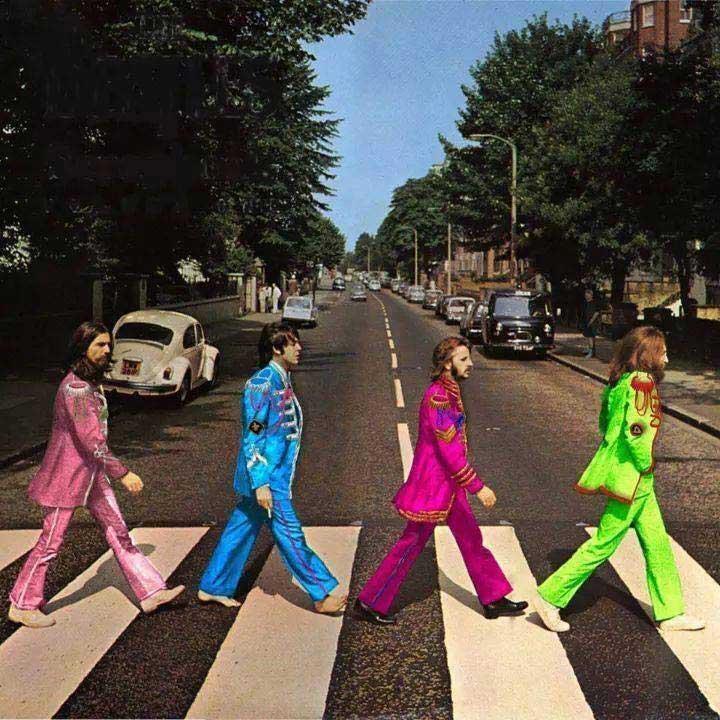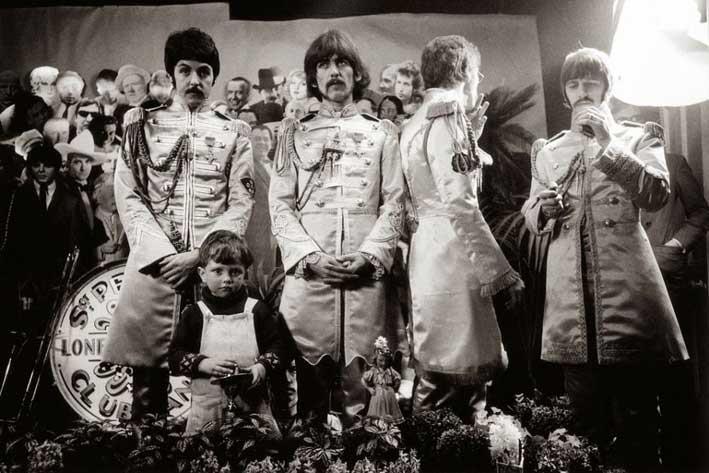Although few realised it at the time, in 1967, three unique happenings marked the climax of 70 years of popular music - and the beginning of its end.
Fifty years ago, on one weekend in June, a hundred thousand orchids were flown in from Hawaii and scattered over a field near Monterey, California, among crowds that had gathered for a weekend of music.

Prior to that date, every field of entertainment had had festivals - opera, ballet, folk, jazz, wine, cheese - but not Rock. However, a formidable line-up comprising The Who, Eric Burdon, The Byrds, Jimi Hendrix, Janis Joplin and Otis Redding changed all that. As Roger McGuinn of The Byrds recalls: "Everyone had flowers on their motorcycles. Such a beautiful sight. The first time that all the pop groups had got together in one place, to see each other personally and discuss their views on music and everything else."
Practically all the world's major 'communicators' - newspaper and magazine journalists, critics, photographers, television and radio reporters - were there to narrate the 'extraordinary' event.
A few weeks later, as many as 100,000 mostly young people, sporting hippie fashions of dress and behaviour, converged on San Francisco's neighbourhood of Haight-Ashbury in what became known as 'The Summer of Love'. This social phenomenon in that summer of 1967, also affected many other places in the United States, Canada and Europe.

Hippies, sometimes called 'flower children', were an eclectic group. Many were suspicious of the government, rejected consumerist values and generally opposed the Vietnam War. A few were interested in politics while others were more concerned with art (music, painting, poetry in particular) or religious and meditative practices.
James Rado and Gerome Ragni were in attendance, allegedly helping to inspire their musical drama Hair. Rado recalled: "There was so much excitement in the streets and the parks and the hippie areas. We hung out with them and let our hair grow. It was very important historically." Also it was at this event that Timothy Leary came out with his famous phrase: "Turn on. Tune in. Drop out". This phrase became the chisel for shaping the entire hippie counterculture, as it voiced the key ideas of the 1960s'rebellion. The term 'dropping out' became popular among many high school and college students, who would often abandon their education for a summer of sex, drugs and rock n' roll.
John Phillips of the band The Mamas & the Papas wrote the song San Francisco ("If you're going to San Francisco, be sure to wear some flowers in your hair") for his friend, Scott McKenzie. The song was an instant success and served to promote and popularise the flower children of San Francisco. The single is said to have sold more than seven million copies worldwide.
During the first few months of 1967, the Beatles' status as the biggest music group in the world was in danger of being taken away from them. The band had announced they were no longer going to perform live because of the growing physical dangers that came with touring, partly due to John Lennon's seemingly blasphemous comments on Christianity, which stoked religious fervour in the United States. Guaranteed sell-out audiences - with crowds so loud that nobody, not even the band, could hear a note of the music - were replaced by half-empty stadiums by the time the Fab Four performed in San Francisco on 29 August 1966 for what would be their final public concert.
When John Lennon, Paul McCartney, George Harrison and Ringo Starr got together with their producer George Martin to record their next album, they found that - for the first time in their hectic lives - with no touring involved, the clock could actually be generous to them. And they availed themselves of this bonanza by churning out what came to be recognised as their masterpiece: Sergeant Pepper's Lonely Hearts Club Band.
This loosely conceptual album was both a celebration and a piss-take on the psychedelic bands that had been popping up at the time. It clearly served as a confirmation that The Beatles were not only alive and well, but still at the forefront of pop music innovation.
Paul McCartney later explained to Barry Miles (author of the celebrated book Hippie) how the title came from the salt and pepper packets. "Me and Mal (Evans, the Beatles' tour manager) often bantered words about. We were having a meal on a flight back to London. They had those little sachets marked S and P: salt and pepper. So I said 'Sergeant Pepper' just to vary it," recalls McCartney, "adding 'Lonely Hearts Club' and 'Band' seemed crazy enough: why would a Lonely Hearts Club have a band?"
To mark the 50th anniversary of the album's iconic release, the BBC is celebrating with programmes across radio and TV. Considered by critics and music-lovers to be one of the greatest records ever made, and a major cultural moment, the album features classic songs including, A Day in the Life, With A Little Help from My Friends, She's Leaving Home and Lucy In The Sky With Diamonds. The planned range of programmes will explore the stories around the recording, release and subsequent life of this seminal album.
In early June, BBC Two presented Sgt Pepper's Musical Revolution, a documentary directed by Francis Hanly, which presented Sgt Pepper as never heard before - literally. The film includes extracts from material never before accessible outside Abbey Road: studio chat between the band', out-takes, isolated instrumental and vocal tracks as well as passages from alternative takes of these world-famous songs.
Written and presented by Howard Goodall, one of Britain's leading composers and a most admired music broadcaster, this is how he introduces his film: "Whatever music you like to listen to, if it was written after June 1967 then more likely than not it will have been influenced, one way or another, by Sgt Pepper's Lonely Hearts Club Band. The record's sheer ambition in its conception, composition, arrangements and ground-breaking recording techniques sets it apart from others of the time. It is a landmark in 20th-century music and I've hugely enjoyed exploring the story behind the music."
Other celebratory events include BBC Radio 2's series Sgt Pepper Forever by Martin Freeman and Paul Merton on the Beatles, while BBC Radio 4 Extra will delve deep into the iconic album's artwork, inspired by the famous faces that are featured on the album's cover.